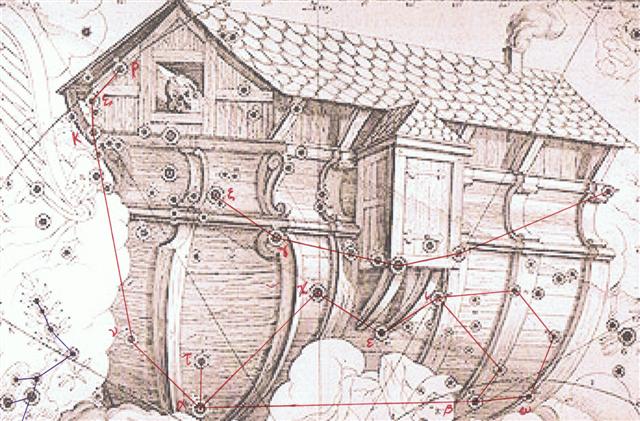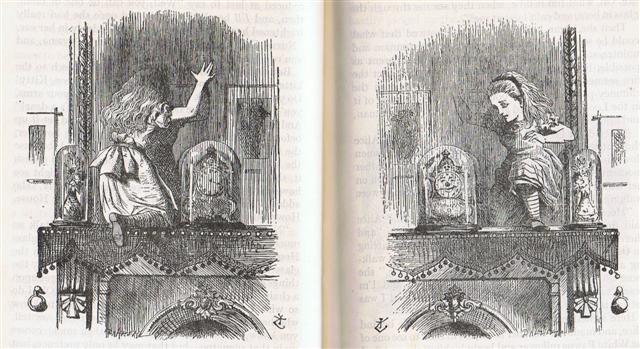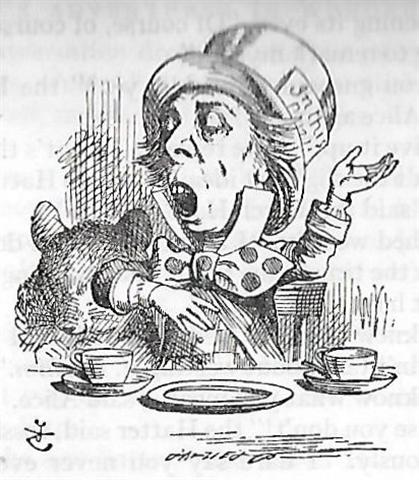Bb5.7
Once again. In late autumn the priests on Hawaii waited for the
return to
visibility of the Pleiades, and this should motivate us
to add 16
right ascension days to the true star positions, and
this
might also have induced the creator of the B text to draw the unusual glyph
Bb5-8:
|
Jan 14 |
15 (380) |
16 (365 + 16) |
 |
 |
 |
|
Bb5-6 (590 =
20 * 29½) |
Bb5-7 |
Bb5-8 (171) |
|
kua kake ko kahini |
kua kake o manava te kahini |
kua kake
ko Reha - kua kake
ko Apareha |
|
Manava. Abdomen, belly,
(fig.) affection, sensitivity, feelings;
manava more, grief; manava mate,
infatuated, in love (with something); ku-ká-á
te manava, flared up, infuriated, irate;
he-kava te manava, offended, to turn sour,
embittered. See also hatu (manava hatu).
Vanaga. Belly, abdomen, entrails, interior;
manava ahuahu, indigestion; manava
hanohano, high tempered, to annoy; manava
itiiti, frugal; manava karavarava,
colic; manava mate, to be in ecstasy,
passion, intensity of affection; manava more,
to desolate; manava ninihi, colic;
manava nuinui, appetite; manava pagaha,
affected, to complain; manava rakerake,
bad character; manava riri, anger;
manava ru, complaint; manava ruru,
alarm, consternation, emotion, swoon; manava
tagi, eager; manava tiha, out of
breath; manava topa ki raro, humble, to
humiliate; manava vai, simpleton, to have
dull senses; meniri ko manava, little
finger; kakari manavai, waist; manava
eete, to shudder, to tremble, to astonish;
anger, fright, consternation; manava eete ki
te mau mea ananake, susceptible;
eete manava, affected, moved; manava pohi,
hasty, cruel, penitent; contrition, indignation;
kokoma hanohano manava pohi, to abhor;
manava pohi nunui ke, implacable. P Pau.:
manava, the interior, affected, touched.
Mgv.: manava, the belly, spirit,
conscience. Mq.: menava, respiration,
pulse. Ta.: manava, belly, entrails.
Churchill.
Koreha. 1. Sea eel;
several sorts are distinguished: koreha puhi.
haoko, migo, tapatea. 2. Koreha o raro o
te oone, earthworm; koreha henua,
snake. Vanaga. Eel, worm; koreha heenua,
worm. Churchill.
Kapa.
Mgv.: a song for the dead, chant. Mq.:
kapa, a heathen song. Mgv.: aka-kapakapa,
an eager desire balked by timidity. Ta.:
apaapa, to flutter the wings. To.:
kabakaba, id. Ma.: kapakapa, to
flutter. Churchill. Tu.: Kapakapa,
portion, particle. Ta.: apaapaa,
fragment, bit, chip. Churchill. In Polynesia
gliding flight is expressed by lele,
flight on flapping wing by kapa. In
Nuclear Polynesia kapa does not pass into
the wing sense except through the aid of a
composition member kau. In Samoan 'au
we find this to mean a stalk, a handle; in
reference to the body its sense as that of some
projecting member is exhibited in 'aualuma
(the 'au in front) as a very delicate
euphemism for the penis. So 'apa'au would
mean literally the projecting member that flaps.
Churchill 2. |
|
RIGHT
ASCENSION DAYS AT THE FULL MOON: |
|
Mash-mashu-arkū-11
(Eastern One of the Twins)
κ Gemini (116.1),
POLLUX = β Gemini
(116.2), π Gemini (116.9) |
AZMIDISKE (Little Shield) =
ξ
Puppis
(117.4)
*76.0 = *117.4 - *41.4 |
Φ Gemini (118.4)
*77.0 = *118.4 - *41.4 |
 |
|
July 15 (196
= 181 + 15) |
16 |
17 (*118 =
*381 - *183) |
And then, according to the era assumed by me for the
rongorongo texts, the '27 hallowed days of Pythagoras' happened to
correspond to the precessional distance down to Julius
Caesar:
|
Jan 17
(355 + 27 = 382) |
18 |
19 (384) |
|
Solstice (382 - 27 = 355) |
'Dec 22 (356 = 382 - 27) |
23 |
|
HELIACAL STARS: |
|
ε Pavonis, θ Sagittarii (302.3), γ Sagittae
(302.5), μ Pavonis (302.7) |
τ Aquilae
(303.8) |
20h (304.4)
304.4 = 118.4 + 186.0
η Sagittae (304.2),
δ Pavonis (304.4)
*263.0 = *77.0 + *186.0 |

Alice exhibited her upraised right arm with
empty hand when pushing on from the night side, and
at her entrance to the light side she had turned her
hand into a convex form, a pattern opposite to
that of the Mad Hatter:

'Twinkle, twinkle, little
bat!' // How I wonder what you're at!' |
 |
 |
 |
|
Bb5-9
(172 → Solstice) |
Bb5-10 |
Bb5-11 (595) |
|
mai tae tuki to haga -
mai tae oho te rima |
mai tae te vere ki te
henua - ko te rima e oho ki to kava |
eko te tagata kua
hakahonui |
|
Rima.
1. Hand, also, but improperly,
fingers, forearm; te ko mu'a o te rima,
palm of the hand; te ko tu'a o te
rima, back of the hand; rima
hakaturu, generous, liberal, munificent;
tagata rima pu'a, helper; rima
hakakau, generous hands, open-handed
person; rima matu'a neanea, thumb. 2.
Fifth; e-rima, ka-rima, five. Vanaga.
1. Five. P Mgv., Ta.: rima, id. Mq.:
ima, id. 2. Arm, hand; rima atakai,
obliging, kind, generous, a gift, rima
tuku, elbow, rima omo,
infidelity, faithless, unfaithful, rima o
te kahu, sleeve, kakari rima,
wrist. P Pau.: rima, hand, arm. Mgv.:
rima, hand, arm, paw, finger. Mq.:
ima, hand, arm. Ta.: rima, arm,
hand, finger. Rimahakaviriviri, fist,
to clench the fist, a blow of the fist.
Rimahati, one-armed. Rima ko manaroa,
little finger T. Rimamatua neanea,
thumb. Rimaroaroa tahaga, middle
finger T. Rimatitiri, to walk with
the hands behind the back. Rimaruru,
to clasp hands. Rimatuhi henna (?)
index finger T. Rimatuhi a hana,
finger ring T (? ring finger). 3. To lead
into error; rimaetua, supernatural,
Mq.: imaima, that which returns after
a man's death, Ta.: rimaatua, plague,
dissension, mortal illness. Churchill.
Honui. 1. Person
worthy of respect, person of authority. 2.
Livelihood, heirloom, capital;
ka moe koe ki toou hônui, you must
marry to ensure your livelihood (said to a
little girl); he hônui mo taaku poki,
this is the heirloom for my son. Vanaga.
Great (hoonui); honui, chief
T.; tagata hoonui, personage;
hakahonui, to praise, to commend.
Churchill. |
|
RIGHT
ASCENSION DAYS AT THE FULL MOON: |
|
DRUS (Hard)
= χ Carinae
(119.9) |
ω Cancri
(120.2) |
8h (121.7)
χ
Gemini (121.0),
NAOS (Ship) =
ζ
Puppis
(121.3) |
 |
|
July 18 (172 + 27) |
19 (200) |
20 |
|
Solstice |
'June 22
(200 - 27 = 173) |
23 |
|
MAY 15
(500) |
16 (136 =
200 - 64) |
17 |
|
... As has
already been mentioned, the Delphians worshipped
Dionysus once a year as the new-born child,
Liknites, 'the Child in the Harvest Basket',
which was a shovel-shaped basket of rush and
osier used as a harvest basket, a cradle, a
manger, and a winnowing-fan for tossing the
grain up into the air against the wind, to
separate it from the chaff. The worship of the
Divine Child was established in Minoan Crete,
its most famous early home in Europe. In 1903,
on the site of the temple of Dictaean Zeues -
the Zeus who was yearly
born in Rhea's cave at Dicte
near Cnossos, where Pythagoras spent 'thrice
nine hallowed days' of his initiation - was
found a Greek hymn which seems to preserve the
original Minoan formula in which the
gypsum-powdered, sword-dancing Curetes, or
tutors, saluted the Child at his birthday feast.
In it he is hailed as 'the Cronian one' who
comes yearly to Dicte mounted on a sow and
escorted by a spirit-throng, and begged for
peace and plenty as a reward for their joyful
leaps ...
 |
In Manuscript E such a dark period of 27 days 'in a
cave' was described as caused by the flipper of a
Turtle - presumably a reflection of the 'calf' thrown
in the face of Ishtar:
... Ishtar appears on the walls
of Uruk and curses the two heroes who have shamed
her, but Enkidu tears out the
right thigh of the Bull of Heaven and flings it
in her face, amidst brutal taunts. It seems to be
part of established procedure in those circles
...
... They all sat down and rested
[on the plain of Oromanga], when suddenly
they saw that a turtle had reached the shore and had
crawled up on the beach. He [Ira] looked at
it and said, 'Hey, you! The turtle has come on
land!' He said, 'Let's go! Let's go back to the
shore.' They all went to pick up the turtle. Ira
was the first one to try to lift the turtle - but
she didn't move. Then Raparenga said, 'You do not
have the necessary ability. Get out of my way so
that I can have a try!' Raparenga stepped up
and tried to lift the turtle - but Raparenga
could not move her. Now you spoke, Kuukuu:
'You don't have the necessary ability, but I shall
move this turtle. Get out of my way!' Kuukuu
stepped up, picked up the turtle, using all his
strength. After he had lifted the turtle a little
bit, he pushed her up farther. No sooner had he
pushed her up and lifted her completely off the
ground when she struck Kuukuu with one fin.
She struck downward and broke Kuukuu's
spine.The turtle got up, went back into the (sea)
water, and swam away. All the kinsmen spoke to you
(i.e. Kuukuu): 'Even you did not prevail
against the turtle!' They put the injured Kuukuu
on a stretcher and carried him inland. They prepared
a soft bed for him in the cave and let him rest
there. They stayed there, rested, and lamented the
severely injured Kuukuu. Kuukuu said,
'Promise me, my friends, that you will not abandon
me!' They all replied, 'We could never abandon
you!' They stayed there twenty-seven [27] days in
Oromanga. Everytime Kuukuu asked, 'Where
are you, friends?' they immediately replied in one
voice, 'Here we are!' They all sat down and thought.
They had an idea and Ira spoke, 'Hey, you!
Bring the round stones (from the shore) and pile
them into six heaps of stones!' One of the youths
said to Ira, 'Why do we want heaps of stone?'
Ira replied, 'So that we can all ask the
stones to do something.' They took (the material)
for the stone heaps (pipi horeko) and piled
up six heaps of stone at
the outer edge of the cave. Then they all said to
the stone heaps, 'Whenever he calls, whenever he
calls for us, let your voices rush (to him) instead
of the six (of us) (i.e., the six stone heaps are
supposed to be substitutes for the youths). They all
drew back to profit (from the deception) (? ki
honui) and listened. A short while later,
Kuukuu called. As soon as he had asked, 'Where
are you?' the voices of the stone heaps replied,
'Here we are!' All (the youths) said, 'Hey, you!
That was well done!' ...

|














